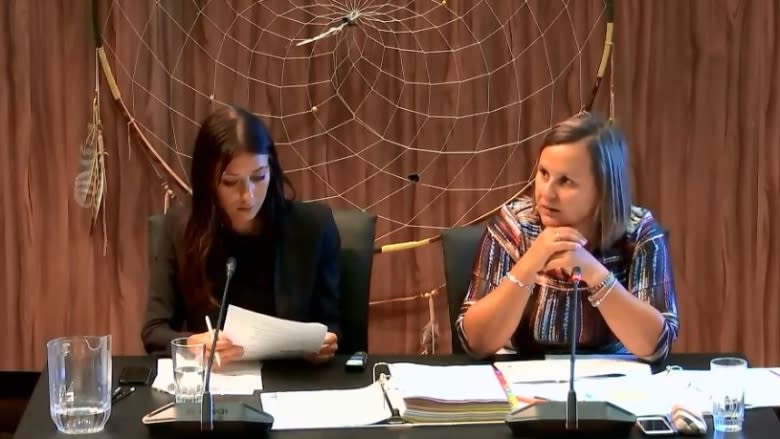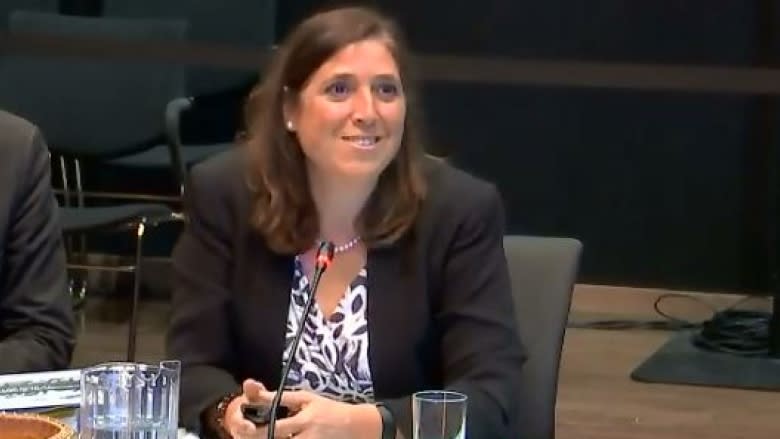Viens Commission lawyers ask why public inquest into high suicide rate in Nunavik was never ordered
Lawyers working with the Viens Commission have raised questions about why Quebec's chief coroners have never ordered a public inquest into the high suicide rate in Nunavik, despite overwhelming evidence that 22 "waves of suicides" have taken place there since 2001.
The lawyers compiled reports of Quebec coroner investigations into the deaths of 380 First Nations and Inuit people between 2001 and 2015 in eight of the 14 villages in the province's northern region.
"With numbers of this magnitude, I think we can say the most serious waves of suicides occur in Nunavik," said Marie-Josée Barry-Gosselin, one of the lawyers, during a public hearing in Val d'Or on Friday.
"Sometimes there are 10 to 15 deaths in a community of 1,500 people," she said.
Launched in 2016, the Viens Commission is examining the treatment of Indigenous people by public service agencies in Quebec. It came after after Radio-Canada's investigative program Enquête reported on allegations by several Indigenous women that they had been mistreated by police officers in Val-d'Or.
Lawyers define 'wave' as 3-4 deaths within a year
The commission's lawyers defined a "wave" as three to four deaths within a one-year period. They found that the majority of Indigenous people who took their own lives did so during such waves.
"That rates of suicide are high in Inuit communities is a known fact in public health, also that [they affect] young people," said Paul-André Perron, a research advisor in the Quebec coroner's office.
Perron said that in all his years of work he'd never been tasked with doing research to find out if the suicide rate was something that could be the subject of a public inquest.
In 2016, the province ordered the coroner's office to hold a public inquest following the suicides of five people over eight months in the Innu village of Uashat-Maliotenam, on Quebec's North Shore.
Chief coroner says she'll consider an inquest
Quebec's chief coroner, Pascale Descary, said public inquests are ordered "when it's necessary to hear experts, or [if] there is a high number of deaths of the same nature, or if there is a need to raise awareness about a sensitive subject that is of interest to the public."
Descary, who was named chief coroner in February of this year, told the commission on Friday that she'll consider holding a public inquest into the deaths.
She said it would take "special funding" to dedicate people to conduct such an inquest, however, if she orders one.
Commission lawyers also grilled Descary about the services the coroner's office offers to grieving families, such as their first contact with the family, or a condolence letter.
Since most of the province's 80 coroners work part-time, there is no system that automatically sends out a condolence letter with the name and contact number of the coroner who will investigate the death, the commission heard on Friday.
The coroners also don't always tell families they can ask for their reports to be translated into their mother tongue, and they don't ask families if they would like an official interpreter.
The lawyers also pointed out it can take almost twice as long for a coroner's investigation report to be finalized when an Inuk dies, compared to non-Indigenous people.



